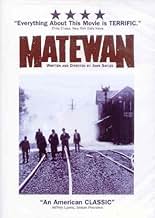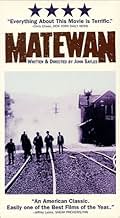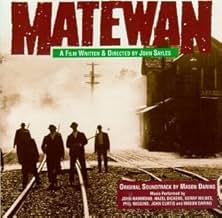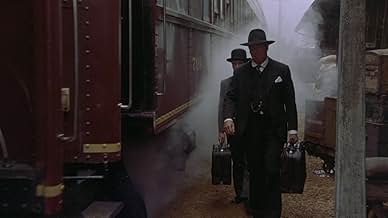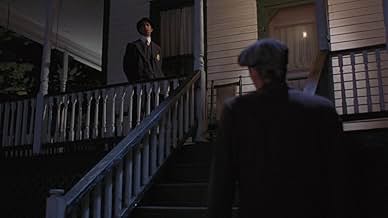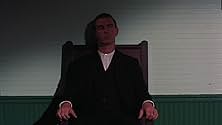A labor union organizer comes to an embattled mining community in 1920 West Virginia, brutally and violently dominated and harassed by the mining company.A labor union organizer comes to an embattled mining community in 1920 West Virginia, brutally and violently dominated and harassed by the mining company.A labor union organizer comes to an embattled mining community in 1920 West Virginia, brutally and violently dominated and harassed by the mining company.
- Nominated for 1 Oscar
- 3 wins & 8 nominations total
- Ellix
- (as Michael Preston)
- Director
- Writer
- All cast & crew
- Production, box office & more at IMDbPro
Featured reviews
A greatly under-appreciated classic
Anyway, the film is very honest, subtle and exquisite. You don't feel, as you do with many films churned out by Hollywood, that things have been altered and embellished for the sake of making it interesting--it's very natural, and it seems very real. You're confidant that Sayles is giving you the truth here, as best he can, through his visual style, restrained, natural dialogue and engaging historic atmosphere.
It's movies like this that renew my faith in period pieces. Important historical films at their best are able to capture a period and bring the audience as close as possible to experiencing the 'feel' of that time--I guess that kinda goes without saying though.
Great movie about my hometown!
An American Masterpiece
My mother was an organizer in the southwest coal counties of West Virginia, arriving there in 1926 (having left college), near the end of the coal wars. Her only comment on the film, when I screened it for her before she died in 1988,was that the working conditions and the living conditions of the miners and their families were far worse than depicted in the film. She always spoke at union meetings surrounded by a body guard of 10-20 armed miners. A number of her young colleagues were assassinated (there's no other appropriate word for how they died).
The murder of Sid Hatfield, the town sheriff of Matewan, in the year following the year portrayed in the film, in broad daylight on the McDowell County courthouse steps precipitated the largest insurrection in the U.S. since the Civil War. More than 10,000 armed miners from the six coal counties, descended on the court house looking for the private detectives and law "enforcement" officers who were the assassins. They took over the court house and the town, and threatened open insurrection. Thew film is a great film. Unfortunately, like most of John Sayles's films, it did not play to a large audience.
A great history lesson!
The conditions these workers faced were brutal. Miners had to pay for all their own equipment, their housing was owned by the mining company and they also paid for it, workers were also paid in credits which they could only use at the mining company store. Workers who went strike were subsequently evicted from their homes.
This movie is great. It's a page from history which should be told much more often. James Earl Jones is terrific as a black miner who is signed up as a scab but he's actually a union sympathizer who encourages the black scabs to strike with the West Virginia workers.
Chris Cooper is also great as a union organizer. I think he's a highly underrated actor. He was very good in American Beauty as the hick next door neighbor and he's great in Matewan as well. Proof, I believe that he can really take on any role.
Bob Gunton is also a great actor. This movie was made long before he was playing every two bit villain of the week. I think that was due to his role as the warden in The Shawshank Redemption where he just let it all out.
I liked one scene in particular early in the film where the union men on strike try to weed out Cooper by finding out how much he knows about union history. Where was Joe Hill buried? In which eye was Big Bill Haywood blind in? Cooper also quips, "I was a Wobbly, back when that meant something" But he does support the notion of One Big Union. The IWW will rise again!
Powerful presentation of the struggle for human dignity and equity.
One needs to search intensely to finally reveal the true history of our period of industrialization. It is of great credit to the producer's and director's of such films as "Matewan" that we can see clearly the history and ongoing great struggle between the working class and the wealthy elite to obtain their proper share of "profits."
This is a film where one enters a theater to be "entertained", but leaves having the stirrings of compassion and outrage raised in their hearts. It reminds us that there is a human price paid for economic gain.
Did you know
- TriviaThe miners' union was broken by 1921, after President Warren G. Harding put the entire state of West Virginia under martial law and sent the army to the coalfields to defend the companies against their employees. By then, hundreds of miners had been killed, thousands arrested and jailed. It was not until 1935, under Franklin D. Roosevelt's New Deal, that union organizing was legally protected in the United States.
- GoofsThe steam locomotive used was ex-New York, Chicago, and St. Louis Railway ("Nickel Plate Road") #765. It was a modern steam locomotive built in the 1940's and thus would not have existed at the time of the events depicted.
- Quotes
Joe Kenehan: You think this man is the enemy? Huh? This is a worker! Any union keeps this man out ain't a union, it's a goddam club! They got you fightin' white against colored, native against foreign, hollow against hollow, when you know there ain't but two sides in this world - them that work and them that don't. You work, they don't. That's all you get to know about the enemy.
- How long is Matewan?Powered by Alexa
Details
Box office
- Budget
- $4,000,000 (estimated)
- Gross US & Canada
- $1,680,358
- Opening weekend US & Canada
- $23,850
- Aug 30, 1987
- Gross worldwide
- $1,680,358


